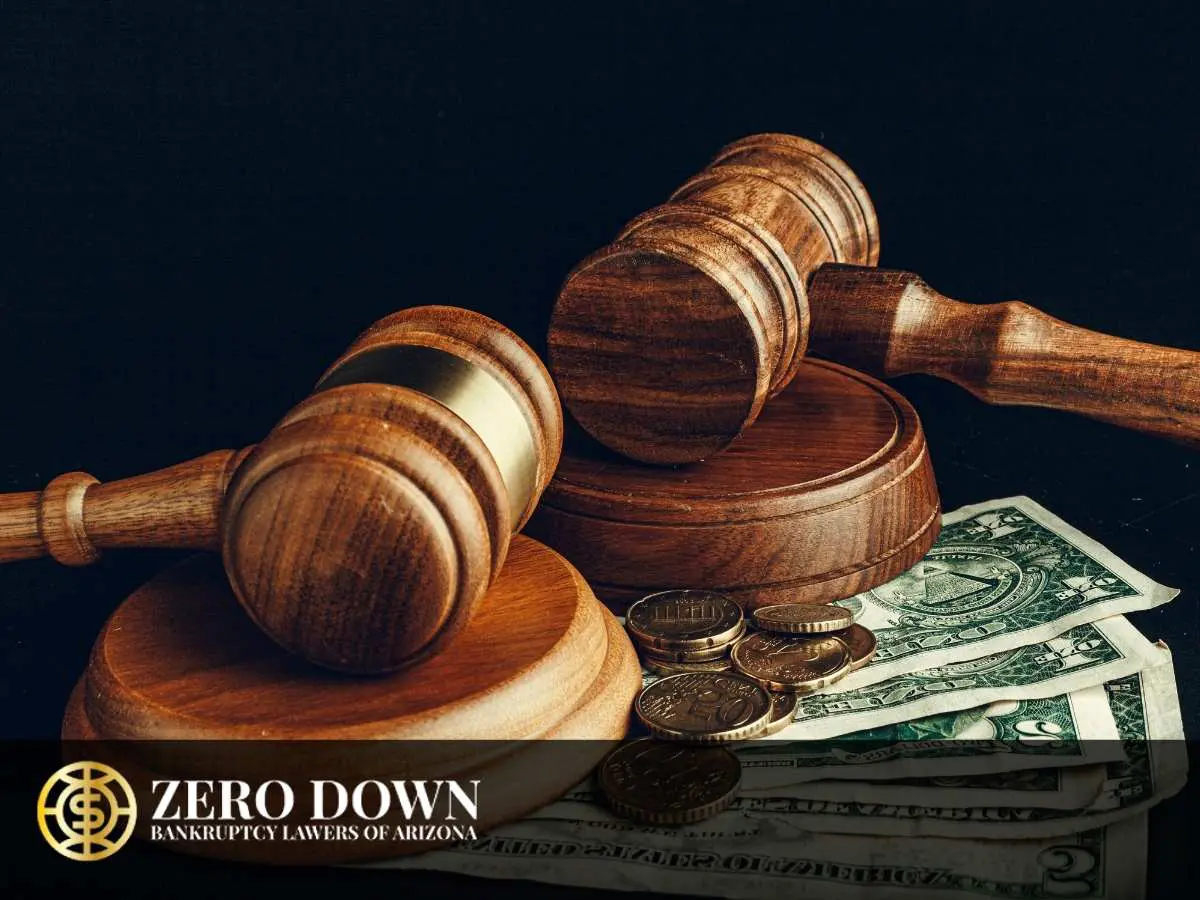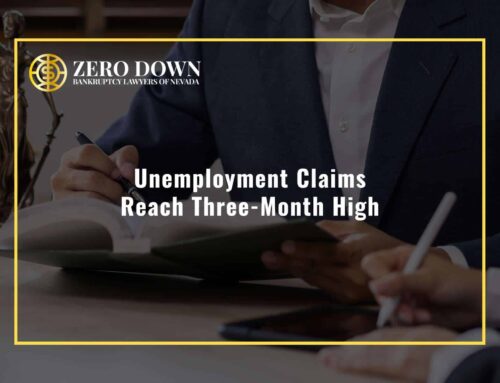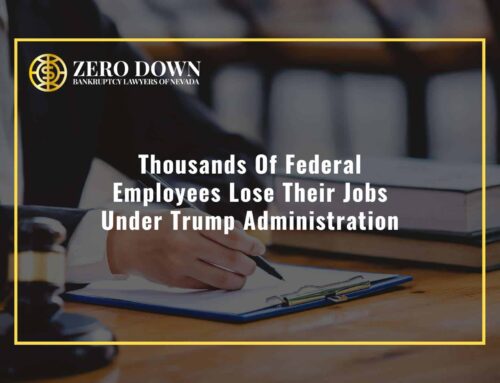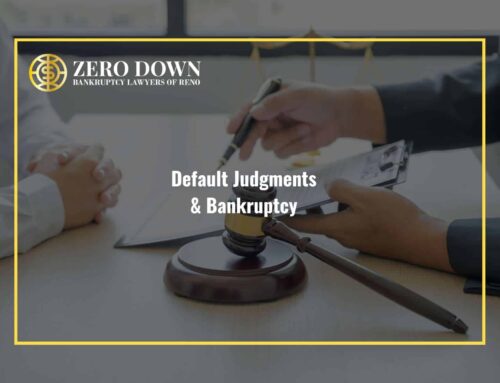Everything You Need To Know Before Filing a Chapter 13 Bankruptcy
If you’re struggling with debt, bankruptcy may be a good course of action to resolve your financial issues. Because it is a serious legal procedure that constrains your finances for years to come, you should fully understand Chapter 13 bankruptcy before filing your petition.
How Does Chapter 13 Bankruptcy Work?
Before filing a Chapter 13 bankruptcy petition, it’s vital that you have a clear understanding of how the process works. When you file Chapter 13 bankruptcy, you will devise a payment plan for your debts that lasts either 3 or 5 years. Your plan will be 3 years if you make less than the state median income (qualify for Chapter 7), and 5 years if you make more.
There are four categories of debts in Chapter 13, and your payment plan will pay them off in order. The first three categories must be paid in full in your plan, but the fourth category only needs to be repaid to the extent possible with your disposable income. First, your legal fees for your trustee and attorney will be paid in your plan. Next, your secured debts will be paid. Your monthly mortgage payments will probably be included in your plan. The rest of your secured debts, such as your vehicle, must be paid in full during your plan. The third category is priority debts, such as taxes. The last category to be paid is unsecured debts. Common examples of unsecured debts include credit cards, medical bills, repossession deficiencies, and personal loans. These debts can be discharged with only partial repayment in an Arizona Chapter 13 bankruptcy.
Why You Might Be Disqualified From Chapter 7, But Not Chapter 13 Bankruptcy
There are several factors that can disqualify you from Chapter 7 bankruptcy, but not from Chapter 13. One of these is having too much income. To be eligible for Chapter 7 bankruptcy, you must either make less than your state’s median income for your family size, or pass the Means Test. The median income for Arizona starts at $52,319 for an individual and increases for each additional family member. The Means Test deducts certain expenses from your income to find your disposable monthly income. You will pass the Means Test and qualify for Chapter 7 if you have negative disposable monthly income. Chapter 13 is available to those whose income is too high for Chapter 7.
Another reason Chapter 13 may be a better option for you is if you have valuable assets that won’t be protected in Chapter 7 bankruptcy. In a Chapter 7 bankruptcy, any assets you have must be protected by exemptions. Exemptions vary by state and are quite low for several categories in Arizona. For example, if you aren’t married, you may only have one vehicle with up to $6,000 equity protected in an Arizona Chapter 7 bankruptcy. If your vehicle, home, and other belongings are too valuable to be protected, you may want to file Chapter 13 instead to avoid the need for exemptions.
Chapter 13 Eligibility Is Sooner than Chapter 7 Bankruptcy
If you’ve filed bankruptcy in the past but are facing another financial emergency, Chapter 13 may be available to you sooner than Chapter 7. In general, the waiting periods to file a Chapter 13 are shorter than those for Chapter 7. If you have previously filed Chapter 7, you must wait 8 years to file another Chapter 7, or 6 years before filing Chapter 13. If you have previously discharged your debts through Chapter 13, you must wait 2 years to file another Chapter 13, or 4 years to file a Chapter 7.
Some Benefits Provided By Chapter 13 Bankruptcy In Arizona
-
Extended Automatic Stay
When you file bankruptcy, the Automatic Stay goes into effect, protecting you from your creditors until your case is discharged or dismissed. This means that in a Chapter bankruptcy, you will be safeguarded against collection methods like wage garnishment, foreclosure, and repossession for 3-5 years.
-
Removing Secondary Mortgages
One of the benefits that Chapter 13 offers that Chapter 7 does not is the removal of any junior mortgages on your home. If the balance of your mortgages exceeds the value of your home, a Chapter 13 will clear away junior mortgages. Your second (or third, etc.) mortgage won’t be factored into your payment plan.
-
Catch Up On Arrearages
Once you fall behind on a monthly payment, it can be difficult to stay current on future payments while resolving your balance in arrears at the same time. You may also be dealing with the additional pressure of a creditor threatening repossession or foreclosure. Your past-due balance will be spread out over the course of 3-5 years in a Chapter 13 bankruptcy, and you will be protected from creditor collection as long as your bankruptcy is in good standing. This can help you save a home, car, or other valued possession from your creditors.
Long Term Advantages Of Filing Chapter 13 Bankruptcy In AZ
It’s impossible to plan a Chapter 13 bankruptcy without significant thought about the future. If you have both chapters of bankruptcy available to you as options, Chapter 7 may be a quick fix to some financial problems, while Chapter 13 provides a better long term solution. A Chapter 13 bankruptcy remains on your credit report for 7 years from the date of filing, or 2-4 years from when your bankruptcy is discharged. A Chapter 7 will remain on your credit for 10 years from the filing date. A Chapter 13 bankruptcy also has less negative impact on your credit than Chapter 7, as debts aren’t repaid in Chapter 7.
Another long term advantage of Chapter 13 is that your debts are repaid at a rate that you can afford. This allows you to keep assets, as well as retain services. For example, if you discharge your medical debts in a Chapter 7 bankruptcy, your doctor may choose to stop seeing you as a patient. Medical professionals and other services you use regularly will actually be repaid in Chapter 13, so you won’t have an outstanding balance if you go to use those services again.
Chapter 13 Bankruptcy Is Complex, Do Not Tackle It Without An AZ Bankruptcy Attorney
Chapter 13 bankruptcy is a complex subject that shouldn’t be navigated without the guidance of an experienced bankruptcy attorney in Arizona. More than 99% of Chapter 13 bankruptcies filed without an attorney end in dismissal. Filing with an attorney gives you a better chance of discharging your debts, and emerging from bankruptcy with a stronger financial footing.
Our Arizona Chapter 13 Bankruptcy attorneys offer free consultations, so you can further discuss the benefits and disadvantages of Chapter 13. We can also determine your qualification, and estimate your monthly payments. To learn more about the benefits of filing bankruptcy with our Arizona bankruptcy law firm, as well as our history with situations similar to yours, call or use our online form to schedule your free consultation.
Arizona Offices
Phoenix Location:
343 W Roosevelt Street, Suite #100
Email: [email protected]
Phone: 602-609-7000
Mesa Location:
1731 West Baseline Rd., Suite 101
Email: [email protected]
Glendale Location:
20325 N 51st Avenue, Suite #134
Email: [email protected]
Tucson Location:
Email: [email protected]











